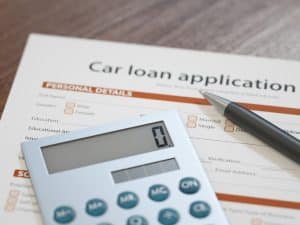
- The Savvy Promise
At Savvy, our mission is to empower you to make informed financial choices. While we maintain stringent editorial standards, this article may include mentions of products offered by our partners. Here’s how we generate income.
In this article
Knowing if you’re eligible for a car loan can help you avoid any shocks when you apply. Because of this, it’s essential to know the minimum eligibility requirements for car finance in Australia, from residency to employment, income, credit score and even the car you’re buying. You can learn all about what you need to apply for a car loan right here with Savvy today!
What are the eligibility requirements for car finance in Australia?
Each lender has different eligibility criteria, so it can vary depending on who you apply with. However, you’ll typically encounter the following requirements:
- You must be at least 18 years of age
- You must be an Australian citizen or permanent resident (or, in some cases, an eligible visa holder)
- You must be earning a stable income which is enough to comfortably support your repayments (this can start from as little as $20,000 to $26,000 per year)
- You must be employed and earning a consistent income from your job
- You must meet your lender’s requirements related to your credit score
- Your car must meet your lender’s requirements related to type, age and condition
These criteria are in place not only to protect lenders from losing money on risky agreements but also to protect borrowers from being burdened with too great a car loan amount. Your financier is required to follow responsible lending obligations, meaning they can’t approve applications that aren’t affordable for you.
There are other criteria that lenders may enforce, such as requiring a good credit score, but, as mentioned, they vary between lenders. The range of lenders on the market in Australia is diverse as it is wide, so even if you don’t have the best credit or are receiving Centrelink benefits as your primary income source, there may still be options available to you.
What documents will I need to supply when applying for car finance?
Once again, the documents required by lenders aren’t always the same. However, you’re likely to be required to supply the following documentation and details as part of your car loan application:
Personal details
- Full name
- Date of birth
- Citizenship/residency status
Proof of identity
- Driver’s licence
- Passport (may be required)
- Medicare card (may be required)
- Birth certificate (may be required)
Proof of address
- Documents such as utility bills or mortgage statements
Proof of income
- Last two consecutive payslips
- 90 days’ worth of bank statements (may be required)
- Centrelink income statements (if applicable)
- Tax returns (if self-employed)
Proof of employment
- Can be provided through payslips or a written letter from an employer (may be required)
Financial details
- Information on any other outstanding loans or debts
- Information on your assets, such as savings, property, superannuation and other investments
Vehicle details
- Information about the car make, model and year of manufacture
- The vehicle’s registration number
- Its Vehicle Identification Number (VIN)
- Contract of sale or dealer invoice for the vehicle
Insurance details
- Proof of a comprehensive car insurance policy on the vehicle
What is borrowing power? How do I know how much I can afford to borrow?
Your borrowing power is the amount a lender is prepared to approve for a car loan when you apply. It’s determined by a range of factors, including:
- Your credit score
- Your income and employment
- Your liabilities and expenses
- Your history of repaying similar debts
- Your savings
- The value and running costs of the car
This provides an indication of how much you can comfortably afford to repay each month or overall without going into financial hardship of any kind (lenders will stop well short of approving an amount that may threaten this).
By knowing your borrowing power, you can avoid applying for too much and subsequently being hit with a loan rejection, which will be marked on your credit file.
You can roughly calculate your car loan borrowing power by figuring out your income from all sources, your expenses, including repayments on loans or credit, as well as rent, utilities and other living expenses. Your number of dependents will also be factored into this calculation.
All of this information can be revealed through a pre-approval, which is a crucial step in the car finance process, according to Savvy Managing Director Bill Tsouvalas.
“Getting pre-approval for your loan before purchasing a car can be beneficial in a range of different areas”, he said.
“Firstly, it gives you more certainty when it comes to your budget, so you’ll know which cars you can afford and which you can’t.
“Where it’s also important is in price negotiations with dealers and private sellers, as it shows you’re a true buyer and shows your price ceiling.”
What counts as income on a car loan application?
Income is defined by most banks and lenders as money earned through employment or investments. However, other sources of income may be accepted on a car loan application by some lenders. Income can come from the following sources:
- Employment
- Self-employment
- Investments (such as rent or a share portfolio)
- Fixed, non-conditional Centrelink payments (such as age, disability and veterans’ pensions, carer payments and family tax benefits)
Not all lenders will accept Centrelink payments, though. Funds stemming from payments such as JobSeeker and Youth Allowance, which are contingent on unemployment, won’t be accepted, as these can disappear if you get a job.
If you’re unsure about whether your income is suitable for a car loan, you can check your lender’s eligibility criteria or speak with your representative or broker.
How can I be eligible for lower interest rates?
The biggest factor in qualifying for lower or more competitive interest rates is to have good or excellent credit. All credit scores in Australia are calculated between zero and 1200, though some reporting bureaus use zero and 1000. The higher a credit score is, the more likely a lender is prepared to offer you a lower interest rate.
However, just because your score isn’t the best right now doesn’t mean you can’t work to improve it. Some of the things you can do to bump your credit score include the following:
- Pay off any existing debts
- If not possible, continue to pay outstanding debts on time and in full
- Lower your credit limits, such as getting rid of unused credit cards
- Have any mistakes removed from your file
- Limit the number of loan applications you make
Tips for boosting your chances of car loan approval
- Understand your credit score: by knowing your situation, you can gain a better understanding of which lenders will be able to approve your application.
- Compare your options: the simplest way to maximise your approval chances is to compare different lenders and their eligibility criteria.
- Buy new or near-new: although almost all lenders will finance used cars up to a certain age, opting for a more modern model will increase your approval chances.
- Avoid job or address changes: in the lead-up to your application, try to avoid moving houses or switching to a new job, as lenders will look for stability in your life.
- Save up for a deposit: putting down a deposit reduces the risk taken on by your lender, boosting your chances of getting the green light.
- Apply within your means: only apply for an amount you can afford; as mentioned earlier, going beyond this will result in rejection.
Did you find this page helpful?
Author
Thomas PerrottaReviewer
Bill TsouvalasPublished on December 15th, 2020
Last updated on April 18th, 2024
Fact checked
This guide provides general information and does not consider your individual needs, finances or objectives. We do not make any recommendation or suggestion about which product is best for you based on your specific situation and we do not compare all companies in the market, or all products offered by all companies. It’s always important to consider whether professional financial, legal or taxation advice is appropriate for you before choosing or purchasing a financial product.
The content on our website is produced by experts in the field of finance and reviewed as part of our editorial guidelines. We endeavour to keep all information across our site updated with accurate information.
Approval for car loans is always subject to our lender’s terms, conditions and qualification criteria. Lenders will undertake a credit check in line with responsible lending obligations to help determine whether you’re in a position to take on the loan you’re applying for.
The interest rate, comparison rate, fees and monthly repayments will depend on factors specific to your profile, such as your financial situation, as well others, such as the loan’s size and your chosen repayment term. Costs such as broker fees, redraw fees or early repayment fees, and cost savings such as fee waivers, aren’t included in the comparison rate but may influence the cost of the loan. Different terms, fees or other loan amounts may result in a different comparison rate.










